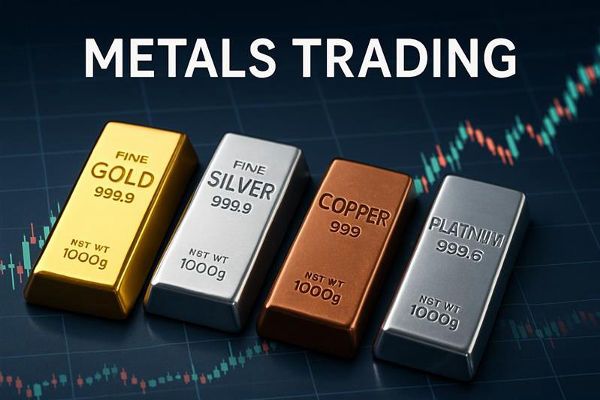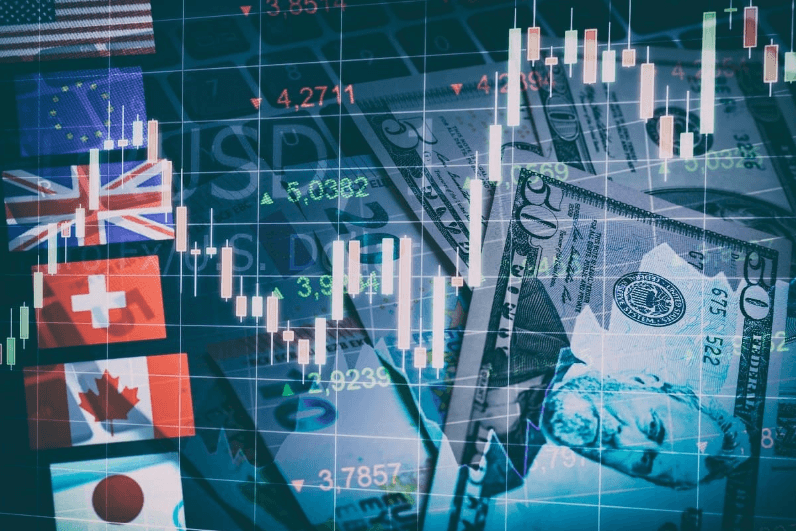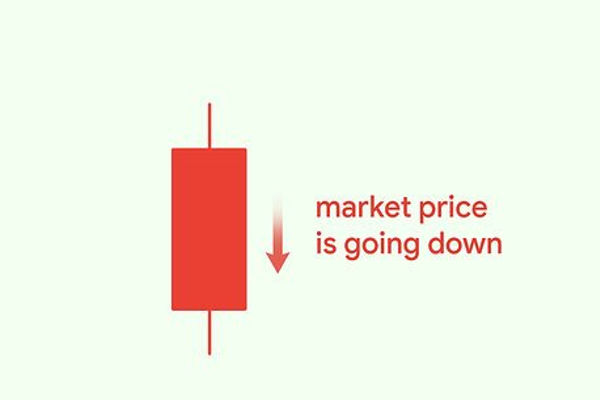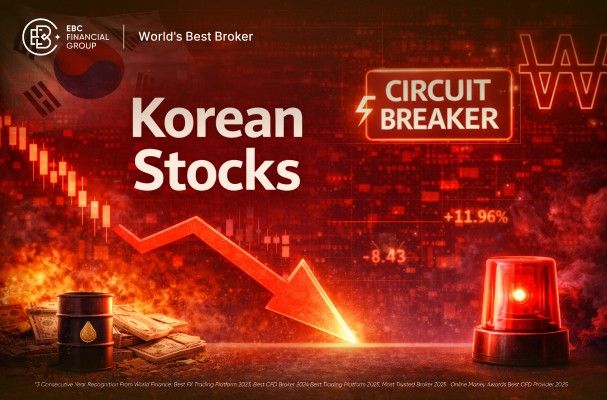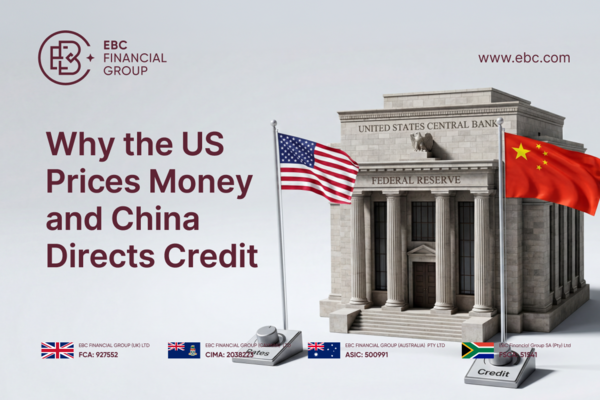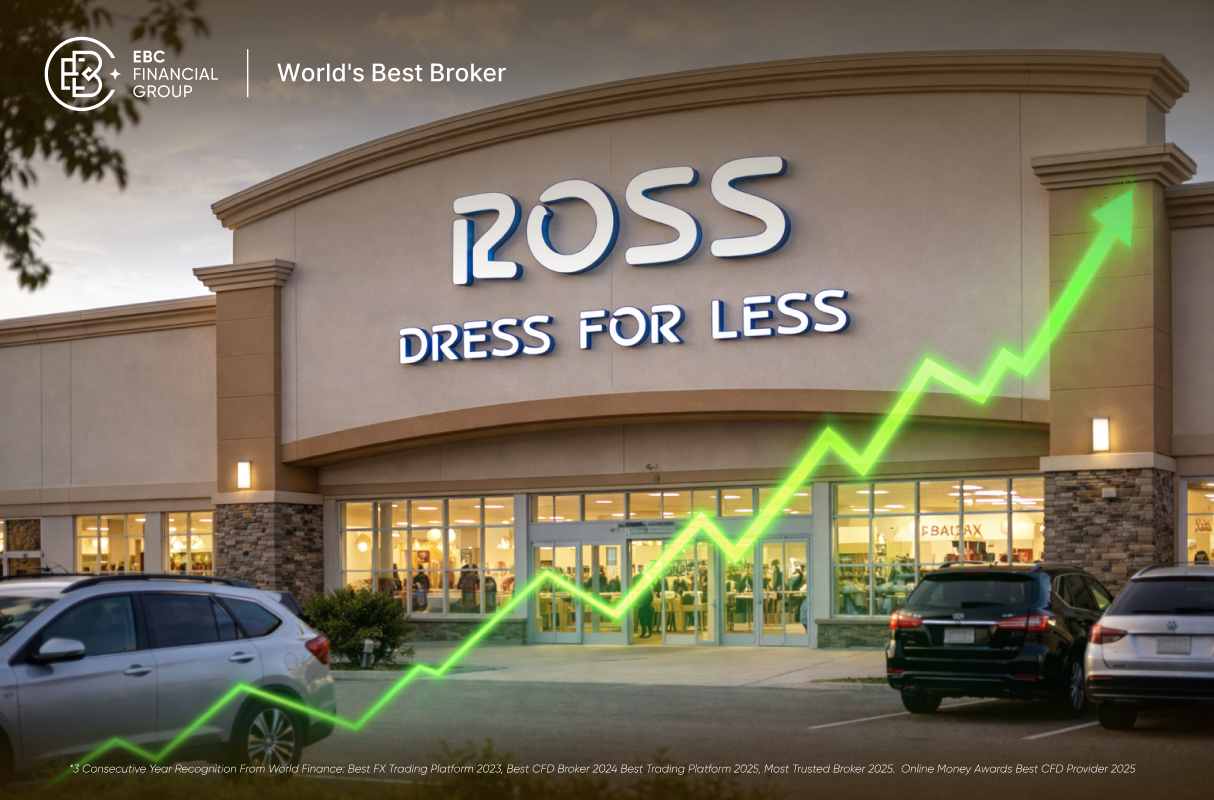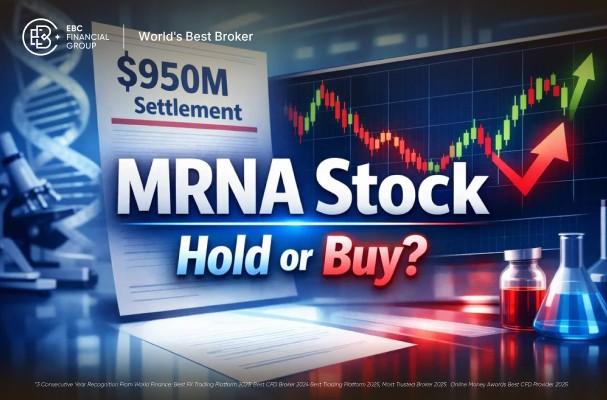Forex futures are standardized contracts traded on regulated exchanges, like EBC, that let you lock in a future exchange rate for a specific currency amount. This transparency and liquidity make them powerful tools for hedging exposure and speculating on FX moves, all while safeguarding against counterparty risk through daily mark-to-market settlement via clearinghouses.
Unlike forwards contracts, which are customised and traded privately over-the-counter (OTC), Forex futures are traded on regulated exchanges, providing more transparency and safety for traders. The most prominent of these exchanges is the Chicago Mercantile Exchange (CME), where contracts for popular currencies like the Euro (EUR), British Pound (GBP), and Japanese Yen (JPY) are available.
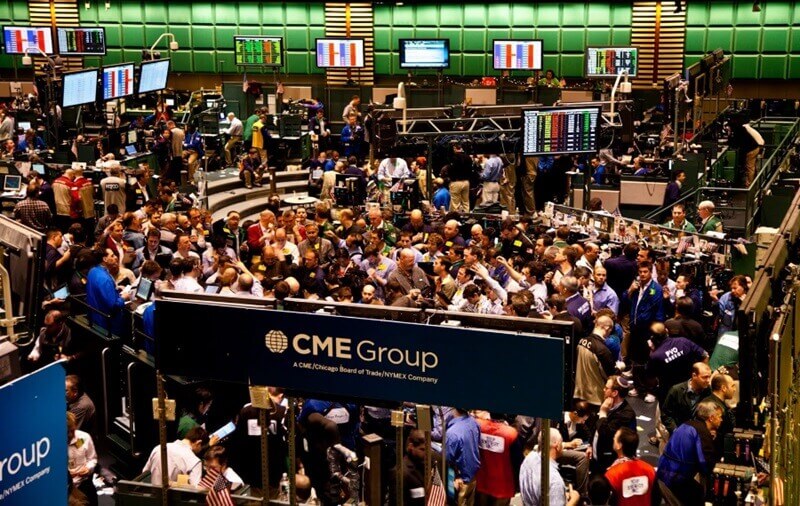
One key feature that makes Forex futures unique is the role of the clearinghouse, which guarantees the integrity of all trades through a process called mark-to-market. This helps to protect both buyers and sellers from credit risk by ensuring that any losses or gains are settled daily.
With the global forex market reaching an impressive $7.5 trillion in daily trading volume, Forex futures have emerged as a significant and rapidly growing class of derivative products that traders use to speculate on currency price movements or hedge their currency exposure.
Why Trade Forex Futures Instead of Spot or Forwards?
Trading Forex futures offers several advantages that make them an appealing choice for both novice and experienced traders. Here's a look at some of the key benefits:
1. How Do Forex Futures Give You Global Market Access?
Forex futures provide global access, allowing you to trade currencies from all corners of the world. Whether you're interested in major currencies like the EUR/USD or looking to explore emerging markets such as the USD/INR (Indian Rupee), futures contracts offer a wide variety of currency pairs.
2. How Can You Hedge Currency Risk with Forex Futures?
One of the primary reasons companies and traders use Forex futures is to hedge against currency risk. For example, if you're a US-based company with business dealings in Europe, you might use EUR/USD futures to protect yourself from fluctuations in the exchange rate between the Euro and the US Dollar. This way, you can lock in a price today for a transaction that will take place in the future, mitigating the potential for losses due to adverse currency movements.
3. How Much Margin Do You Need to Trade Forex Futures?
Another appealing feature of Forex futures is their capital efficiency. Because futures are leveraged instruments, you can control a much larger position than the capital you actually put up. This is thanks to the Margin Requirements, the amount of money needed to open a position, which are typically lower than for other types of trading, such as equities or commodities. This allows traders to manage more substantial positions with less capital, making it easier to diversify a portfolio.
4. How Do Exchanges and Clearing Make Trading Safer?
Since Forex futures are traded on regulated exchanges like the CME, you can trade with confidence, knowing that all transactions are transparent and that CME Clearing guarantees the settlement of every trade. This adds a layer of security, as you don't have to worry about the creditworthiness of the counterparty, a concern often presents in OTC markets.
How Do You Trade Forex Futures Step by Step?
Now that you understand the basics of Forex futures and the benefits they offer, let's explore how to get involved in this dynamic market.
1. How Do You Choose a Futures Broker and Open an Account?
To start trading Forex futures, you'll need to open an account with a futures broker. These brokers provide access to the futures markets, offer various trading platforms, and provide tools to help you manage risk. Look for brokers that are well-regulated and offer a user-friendly platform with a wide range of currency futures contracts to choose from.
2. Which Trading Style Should You Use (Day, Swing, or Scalping)?
There are different ways to approach Forex futures trading, depending on your preferences and risk tolerance:
Day trading: Involves entering and exiting trades within the same trading day, capitalising on short-term price movements.
Swing trading: Aimed at capturing price movements over several days or weeks, relying on technical and fundamental analysis to predict trends.
Scalping: A strategy where traders take advantage of small price changes by making many trades over a short period of time.
Whatever strategy you choose, it's important to develop a plan and stick to it. Risk management is crucial, as the leverage inherent in futures trading can magnify both gains and losses.
3. Can You Trade Forex Futures on Mobile?
The convenience of mobile trading has revolutionised the way traders interact with the forex market. Many brokers offer mobile platforms, enabling you to trade on-the-go from your smartphone or tablet. This flexibility allows traders to react to market developments and make trades from anywhere, at any time.
4. What Contract Specifications Matter (Size, Tick, Months)?
Forex futures contracts come in various sizes and specifications. For example, the CME offers contracts ranging from 100.000 units of Australian Dollars (AUD) to 125.000 Euros (EUR). Understanding these contract sizes is essential because it helps you calculate the required margin and assess the potential risk involved in each trade.
Is Trading Forex Futures Right for You?
Forex futures are an excellent choice for traders who want to participate in the global currency markets with the added benefits of leverage, transparency, and security. Whether you're looking to hedge your exposure to currency fluctuations or speculate on price movements, futures contracts provide a structured and efficient way to trade.
As with any financial instrument, Forex futures trading carries risk, particularly because of the leverage involved. It's important to start with a solid understanding of the market, a well-thought-out strategy, and a clear Risk Management Plan. By doing so, you can use Forex futures to diversify your investment portfolio, hedge against currency risks, and potentially profit from global currency movements.
FAQs
What is a forex futures contract?
A standardized agreement to buy or sell a set amount of currency at a preset price on a future date, traded on regulated exchanges and cleared daily.
How are forex futures different from spot or forwards?
Spot settles now; forwards are customized OTC; futures are standardized, exchange-traded, and cleared, which adds transparency and reduces counterparty risk.
Do I need a lot of capital to start?
Not necessarily, margin lets you control larger notional with less cash, but it also amplifies risk; know your contract size and tick value.
Which strategies suit beginners?
Start simple (day or swing setups), size positions conservatively, and align your style with volatility and your schedule before scaling up.
What should I check before placing my first trade?
Broker regulation and platform access, contract specs (size, tick, months), margin requirements, and a written risk plan with predefined stops.
Disclaimer: This material is for general information purposes only and is not intended as (and should not be considered to be) financial, investment or other advice on which reliance should be placed. No opinion given in the material constitutes a recommendation by EBC or the author that any particular investment, security, transaction or investment strategy is suitable for any specific person.











